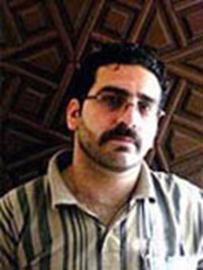The Questions of Oral History Interview (Part III)
Interviewer Should Use Ethology
Akram Dashtban
Translated by Ruhollah Golmoradi
2018-7-3
The following text was prepared based on the call for questions on oral history in which from perspective of one of those who has produced works by using this method, the question "what are characteristics of oral history interview questions?" has been answered.

Saying that there are so many books on how news interviews have been published and one of main strategies in oral history interview is interviewee's intimacy with memory teller, Hasan Shirdel added, "An interview in oral history which is conducted by interviewer is different from news interview. In an interview of oral history, interviewer should use psychological techniques and know ethology. When he/she goes to a warrior to record his memories, she/he has to study lives of people who had experienced the war, or narrator's friends from whom some books have been published before asking and conducting the interview; or, if she/he does not have access to books, attend in their friendly meetings so that she/he can communicate with interviewee or narrator's living environment and ask applied questions based on it. When interviewer goes to narrator with this background, he/she can persuade narrator to carefully remember memories with challenging questions derived from similar experiences. Interviewer in oral history walks on the edge of the sword, and if he/she makes a mistake, he/she enters story space, and if proceed properly it would be the same oral history.
Pointing out that for oral history in field of activity of this method in our country there is still no original and defined basis for interview, he says, "no fundamental basis have been adjusted and determined in Hozeh Honari as a center that addresses this topic. In our country, one who wants to go to story writing read books of Ebrahim Younesi and Jamal Mirsadeghi and by referring to their books will become familiar with framework of story writing; but in field of oral history, there has not been any book in subject of biography interview, so each person raise a subject as he/she likes and writes a book, and then wrestle with whether introduce the book as memory or oral history.
■
Iranian Oral History Website raises questions about oral history for experts and practitioners of this subject and releases answers for the audience. Responses altogether will have significant results. If you have any questions, please post it in this page in order to read comments of experts and practitioners of oral history about it.
A Strong Interview Is Tied with Research
Interview Is the Heart of Oral History
Number of Visits: 4527








The latest
- The 368th Night of Remembrance – Part 2
- Agents in Search for the Fighter
- The Embankment Wounded Shoulders – 13
- The Necessity of Standardizing Oral History and Criticism of General Mohsen Rezaei
- The 368th Night of Remembrance – Part 1
- Oral History News of Khordad 1404 (May 22nd – June 21st 2025)
- Najaf Headquarters Human Resources
- The Embankment Wounded Shoulders – 12
Most visited
- Najaf Headquarters Human Resources
- Oral History News of Khordad 1404 (May 22nd – June 21st 2025)
- The Necessity of Standardizing Oral History and Criticism of General Mohsen Rezaei
- The 368th Night of Remembrance – Part 1
- The Embankment Wounded Shoulders – 13
- Agents in Search for the Fighter
- The 368th Night of Remembrance – Part 2
Operation Beit al-Moqaddas and Liberation of Khorramshahr
After Operation Fat’h al-Mobin, we traveled to Kermanshah and visited Sar-e-Pol-e-Zahab before heading to Ilam. During Operation Beit al-Moqaddas, the 27th Brigade was still receiving support from the West. We maintained contact with individuals who had previously worked in Area 7 and were now leading the brigade. It was through these connections that I learned about Operation Beit al-Moqaddas.Memoirs of Hujjat al-Islam Reza Motalebi
Hujjat al-Islam Reza Motalebi is a cleric from Isfahan. Before the revolution, he was the imam of the Fallah Mosque – which was later renamed Abuzar Mosque. By his presence and efforts, Abuzar Mosque soon became a base for supporters of the Imam and the revolution. After the victory of the revolution, he played a role in uniting forces and maintaining political vitality in southwest Tehran.The Necessity of Receiving Feedback in Oral History
Whenever we engage in a task, we naturally seek ways to evaluate our performance — to correct shortcomings and enhance strengths. Such refinement is only possible through the feedback we receive from others. Consider, for instance, a basketball player whose shots are consistently accurate; should he begin shooting blindfolded, his success rate would rapidly decline, as he would be deprived of essential feedback from each attempt.Sir Saeed
The book “Sir Saeed” is a documentary [narrative] of the life of martyr Seyyed Mohammad Saeed Jafari, written by Mohammad Mehdi Hemmati and published by Rahiyar Publications. In March 2024, this book was recognized as one of the selected documentary biographies in the 21st edition of the Sacred Defense Book of the Year Award. The following text is a review on the mentioned book.

